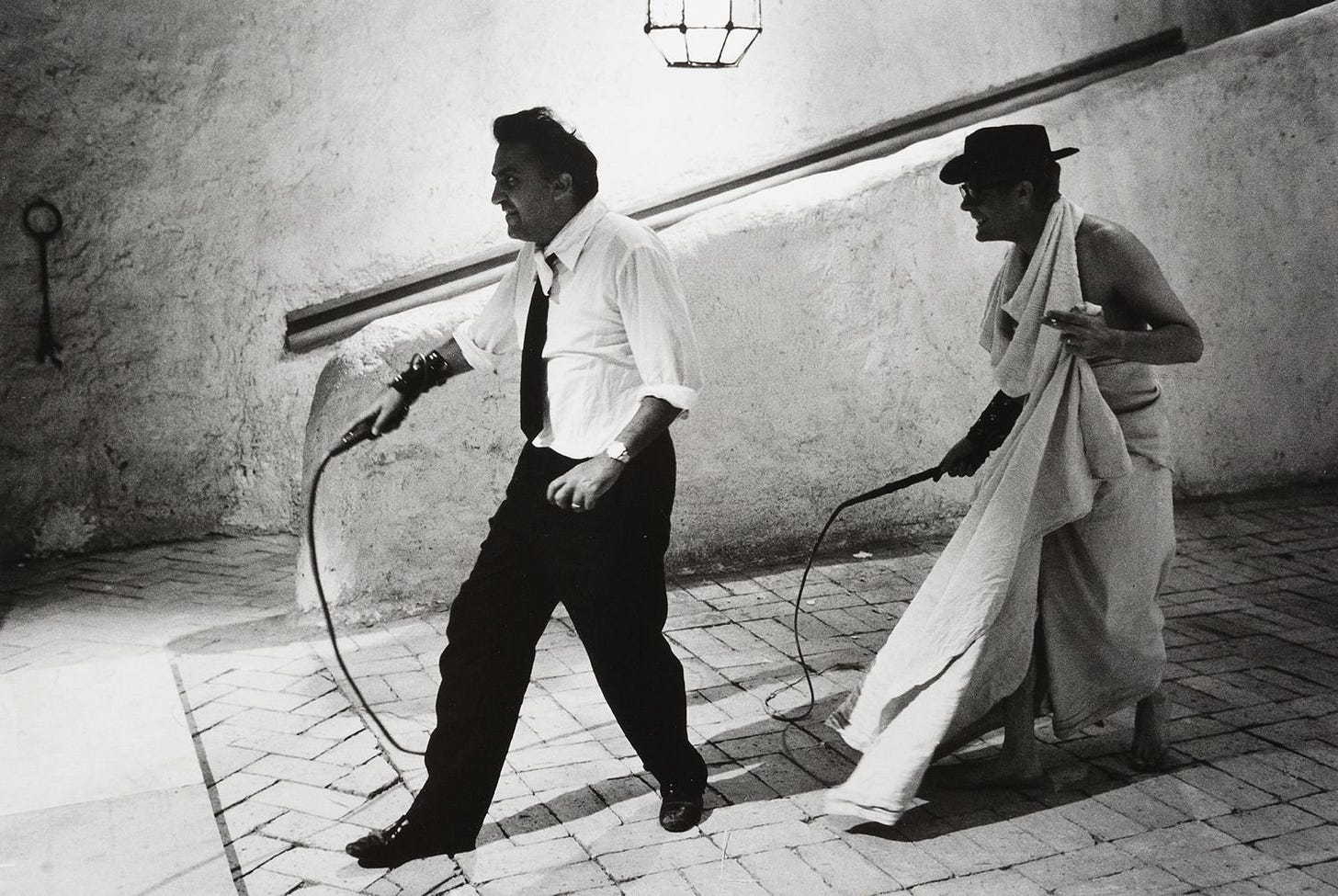There is no "safe," part 4
my guide for vetting sadists, dominants, and tops
Read Part 1, Part 2, and Part 3.
When Federico Fellini said he made films because he liked to tell lies, I felt that. In fact, my passion for lying is one my reasons for writing. What are both if not attempts to control information? Like lying, writing is an expression of my desire to be so thorough, so precise, in my communication that I might never be misunderstood (except when it suits me, of course). As a writer, I’m suspicious of words. While there is no enmity between us, there is a tension. Liars know (do writers?) that nothing that is said can ever really be trusted.
Though it’s probably not what a therapist would call healthy, my suspicion of words is great for navigating intimate relationships, particularly the romantic ones: I don’t care what you say, only what you do. Talk is cheap and action is dear; if there is an honest, trusting relationship to be found, it hides in their convergence, like glitter in the gutter of a book.
When I started dating D last year, I noticed that what he said always matched what he did. He said he wanted to buy me things, and he did. He said he wanted to take me places, and he did. He said he wanted to chain me in a basement and observe me from a monitor, and had there been a basement available, I think he would have. In contrast to my inconstancy, D was easily affectionate, paying me outrageous compliments and listening intently when I spoke. When he said he cared for me, I believed him because there was invariably some action to back up the words.
But something was off. “Love bombing” would ascribe to D a sinister intent he didn’t have, and yet everything with him was too much, too fast. I was the one who always had to hit the brakes, say no, go limp. It’s a lot for anyone, especially the relationship’s designated punching bag. When my signals and road flares didn’t slow the momentum, I soft-launched a breakup before we were even properly dating. That was when D unfurled the red bunting I needed: i don’t care if it’s not good for you, he texted. i just want to be with you.
On Jade’s sage advice, I told D I needed a week to think. By the end of the first day of no-contact, I not only knew that it was over, but that I wanted it to be. To blame D for his intensity would be unfair—I know what kind of codependent I am, especially with sadists—but if what he said always matched what he did, then what action might accompany words like i don’t care if it’s not good for you? Even if they had been uttered in a moment of thoughtlessness, there was nothing to be gained by sticking around to find out.
What I did gain from dating D was a reminder, if not a lesson: care happens in both word and deed, even if the liar in me would prefer otherwise. Which brings me to the topic of this installment of my guide for vetting SDATs:
Safer sadists, dominants, and tops demonstrate care for your physical, mental, and emotional safety.
Keep reading with a 7-day free trial
Subscribe to DAVID to keep reading this post and get 7 days of free access to the full post archives.


